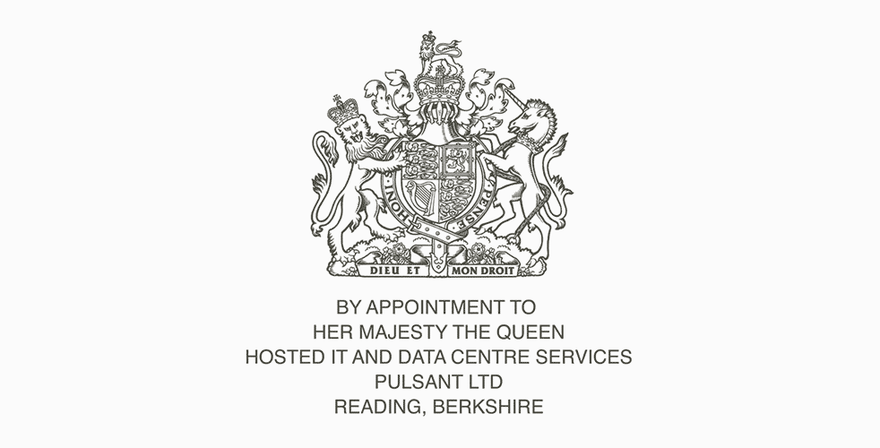British cloud, colocation and hosting provider Pulsant claims one crowning achievement in its 20 year history: it is the only data center operator to be awarded a royal warrant, making it the official supplier of hosted IT to the British monarchy.
Pulsant was established in 2012 from the merger of several smaller, independant companies, some of which have been offering IT infrastructure services since 1995. Now its warrant gives it the right to display the Queen’s coat of arms in public – a tradition that began in the Middle Ages.
“They are a very good customer,” Matt Lovell, CTO at Pulsant told us.
By appointment to her Majesty the Queen
Pulsant operates ten data centers, linked by its own fiber optic network and powered by 100 percent renewable energy. It has around 3,000 customers across the UK and Europe, mostly mid-tier online businesses.
Among other things, the company runs the largest private data center in Scotland and hosts the official website of the British royal family.
Pulsant began its path to a royal warrant in 2011 when it acquired Dedipower, a small managed cloud provider and one of many IT suppliers to the Queen’s household.
Royal warrants of appointment have been issued to people or organizations who supply goods or services to the British court for almost ten centuries. They allow the recipient to advertize the fact that they deal with the royals, lending them a certain level of prestige. The total number of valid warrants in the UK currently stands at around 1,100.
Similar customs are practiced by the royal courts of Holland, Belgium, Denmark, Sweden and Thailand, among others.
According to the long-established rules, a British royal warrant can only be granted after five years of reliable service and is reviewed every five years afterwards, so the recipients have to continuously prove their worth.
A company can’t ask for the honor – it has to be nominated - and even a successful nomination does not guarantee acceptance, since the warrant has to be approved and signed by either the Queen, the Duke of Edinburgh or the Prince of Wales.
Taking into account the good work done by Dedipower, Pulsant was granted its royal warrant in 2013.
Lovell said the appointment recognizes the high quality of service provided by the company, adding that it has also served its original purpose – advertising – with customers definitely having more interest in the royally endorsed cloud provider.
He believes the warrant has proved to be a useful tool in the 21st century: “We have become part of the ecosystem that supports British business,” said Lovell.

